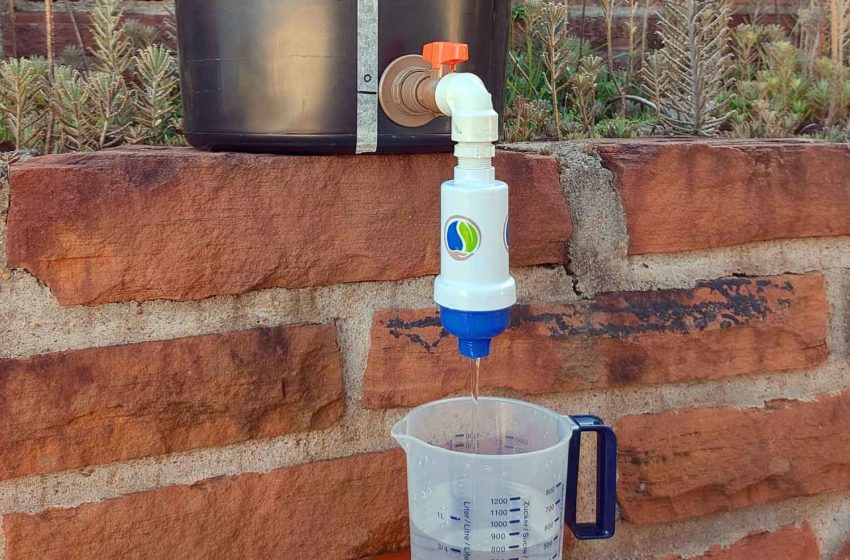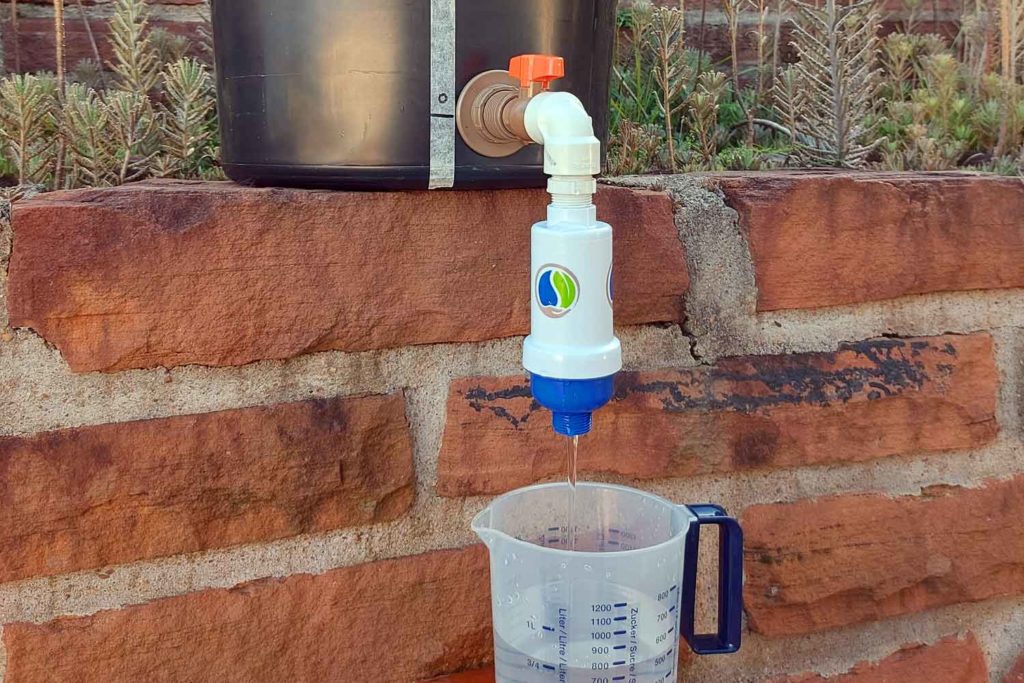Making a Splash
- Print Edition Sustainability
- August 1, 2022
- 0
- 9 minutes read


A small water filter and a biodegradable sample bag may help reduce the environmental impact of tobacco production.
By George Gay
The U.N. Biodiversity Conference is due, Dec. 5–17, in Montreal, Canada, to convene governments from around the world to agree to a new set of goals for nature, according to the Secretariat of the Convention on Biodiversity. That is the good news, I guess. The bad news is that, in a note posted June 21 on the U.N. Environment Program website, the secretariat said that despite ongoing efforts, biodiversity was deteriorating worldwide and that this decline was projected to worsen with “business-as-usual scenarios.”
One of the concerns I have is that we seem to be piling one existential crisis on top of another. A decline in biodiversity feeds climate change and environmental damage, and climate change and environmental damage feed a decline in biodiversity. And because of this seemingly catastrophic loop, I find it’s easy to become overwhelmed by a feeling of helplessness. But there is another way of looking at things. Firstly, we can admit that we are faced with an existential crisis, and secondly, we can respond positively in any and every way possible. And, luckily, there are some seemingly modest interventions that step out of the shadow of business as usual and punch above their weight.
The idea that, in attempting to tackle the environmental crisis, we needed to look beyond the obvious, major interventions was suggested to me recently by Rainer Busch, the managing director of the tobacco dealer NewCo, in response to something I had written about deforestation being caused by tobacco farmers using wood fuel for curing tobacco. While accepting that such deforestation was a problem, he pointed out that a bigger problem was caused by the need for farmers and their families—along with many other people in less developed countries—to burn wood for other reasons, including the need to boil otherwise nonpotable water.
Starting Small
Fortunately, this domestic problem, while bigger, is potentially easier to address and is starting to be addressed in a modest way through a newly incorporated company, NewCo Pro, which was set up to focus on business opportunities that embrace positive socioeconomic initiatives outside the tobacco industry, though mostly connected with it. And one of NewCo Pro’s first initiatives has seen it partner with Sydney 905, a South Africa-based company that offers water filters.
Jose Maria Costa, the senior executive advisor at NewCo Pro, who first came across these filters, is passionate about their potential to improve the lot of people who do not have easy access to potable water. Costa, who has lived in and visited many less developed countries, told me that, notwithstanding his experience, he was horrified when he started to investigate how, in the 21st century, millions of people lived without ready access to acceptable water. It seemed impossible that so many people still lived in this way, he said.
There are a lot of water filters on the market, but Costa reckons the Sydney 905, for which NewCo Pro is the worldwide sales agent, is ideal. And it is hard to disagree. This is a robust, easy-to-use, versatile unit that is small enough to be carried in a largish pocket but with capacity enough to serve a family. It is mainly intended to be fitted to the outlet tap of a container of collected river, well or rainwater, and, using a simple gravity feed, turn about 30–35 liters of murky-looking contaminated water crystal-clear and safe each hour while retaining naturally occurring, safe minerals. But it can also be used to process mains water, where such is available, or it can be attached to a plastic bottle of water taken from a river, in which case the drinker supplies the necessary pressure simply by squeezing the bottle. It uses neither chemicals nor batteries.
As well as the Sydney 905 Filter, which uses a 0.1 micron hollow-fiber membrane that Costa expects to attract most interest, there is the Sydney 905 Purifier, which uses a 0.01 micron membrane and is therefore suitable only where mains pressure is available. The exact specifications of the two units are fully explained at www.newco-pro.com, which also provides the results of water purity tests undertaken by various official certification bodies along with some informative and entertaining videos.
Return on Investment
One of the most compelling things about the Sydney 905 filter has to be its value. While, at about $40 a unit, it would not be cheap for a financially impoverished family, there is no need to change the filter, so the unit could last for very many years without incurring any maintenance costs as long as it is regularly and conscientiously cleaned using a simple backwashing process. And while the initial outlay is not insubstantial, the payback is rapid and ongoing. One Kenyan farmer who wrote to Costa said that by using the filter, his family of 10 was saving about $60 a month because it no longer had to buy bottled water. Additionally, another savings, in costs and health, was being enjoyed because the farmer and his family were no longer losing work and school days to sickness caused by water pollution.
It is surely not beyond the bounds of possibility that these filters could be provided free of charge by major companies working closely with tobacco and other farmers or that at least these companies could provide interest-free loans to help such farmers buy them. After all, as Busch pointed out, the use of these filters can help in the fight against deforestation, and as Costa added, most tobacco companies have committed to the U.N.’s Strategic Development Goals, No.6 of which aims to provide everybody with clean water by 2030.
Things are moving. Costa said that NewCo Pro believed it was close to an agreement to start production of the filters in India, for the Indian market, and that the company had been in contact with large nongovernmental organizations, local governments and tobacco companies around the world. But progress is not what it should be, given the personal and population-wide problems caused by the lack of potable water and given that the Sydney 905 solution to the problem seems so simple but powerful. Achieving goal No.6 is going to require all hands to the pump and a willingness to step out of the shadow of business as usual since, according to the NewCo Pro website, in 2022, 844 million people lack basic water services, 2.2 billion people lack safely managed drinking water, and 3.5 million people die each year from causes linked to unsafe water.
Biodegradable Bags
Meanwhile, there is a certain irony in NewCo Pro promoting the distribution of these filters because they are made of plastic, and another NewCo project is aimed at reducing the use of plastics. But there is a clear difference here. The filter units are meant to last many years whereas the plastic NewCo is trying to eliminate is single use, such as that used for wrapping leaf tobacco samples.
Busch has been working on this project for about three or four years now, since before the formation of NewCo Pro. He started by replacing the plastic sample bags with reusable cotton bags, but while these were popular with customers up to a point, they had the disadvantages that they weren’t transparent and that they weren’t as good as plastic at retaining moisture.
What NewCo Pro is now offering is a transparent bag made from potato starch. These EU-certified and Germany-certified food grade bags are 100 percent biodegradable so that while, theoretically, they have an unlimited life under normal circumstances, they break down into compost that can be used as fertilizer within 90 days to 150 days of their coming into contact with an environment open to the elements. Busch said that farmers in Italy and Spain are already using seedbeds made from the product, which is ideal for such use and better than commercially available fertilizers, a seemingly critical factor at a time of soaring fertilizer prices.
But there is a catch. While the people on the ground who Costa talks with are enthusiastic about this biodegradable product, the message apparently is not getting back to the people who make the decisions, or those people are stuck in business-as-usual mode and are not making the decision to change from plastic to potato starch. If it is a lack of decision-making, this seems incredibly short-sighted, especially given the huge problems being caused by plastic waste and given that switching to the new type of bags would allow companies to improve the services they offer and be seen to improve those services while incurring only an immaterial increase in costs. There seems to be no reason why companies could not make the switch immediately. After all, if a relatively small leaf dealer such as NewCo can research this matter and make the change, surely others, with the research having been carried out for them, could make the switch also.
Undaunted, NewCo Pro is already researching the use of potato starch for applications that go beyond sample bags—applications such as replacing the polyliners used for packing certain lots of tobacco for particular customers or replacing the plastic polypots used in the production side of the industry. And it is willing to put companies wishing to follow its lead in touch with the suppliers of such materials. When it comes to plastics, the message from Busch and Costa is “enough is enough.”

